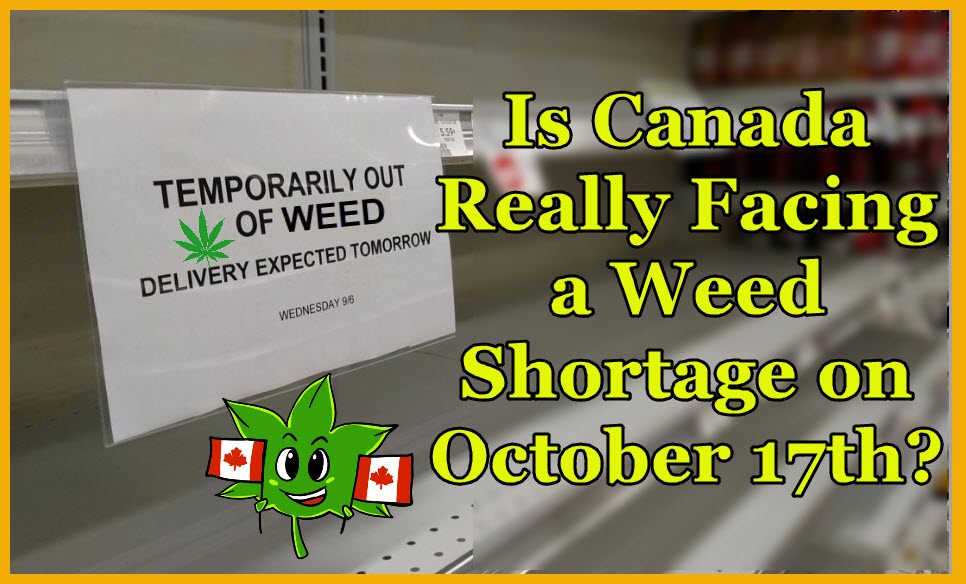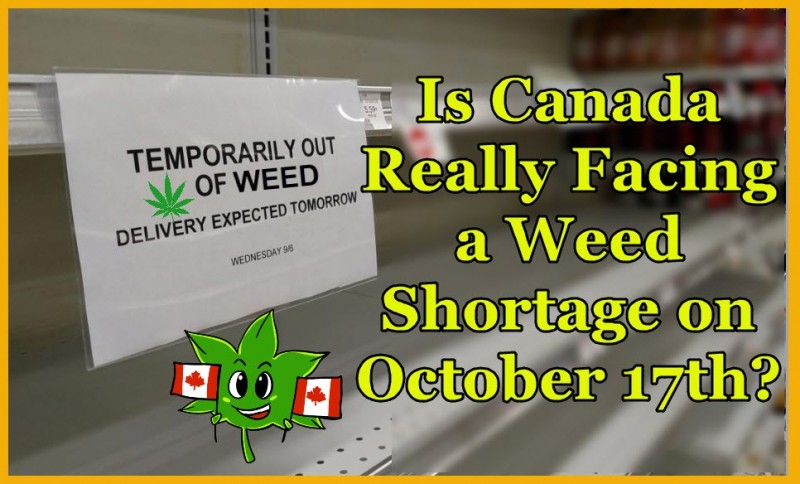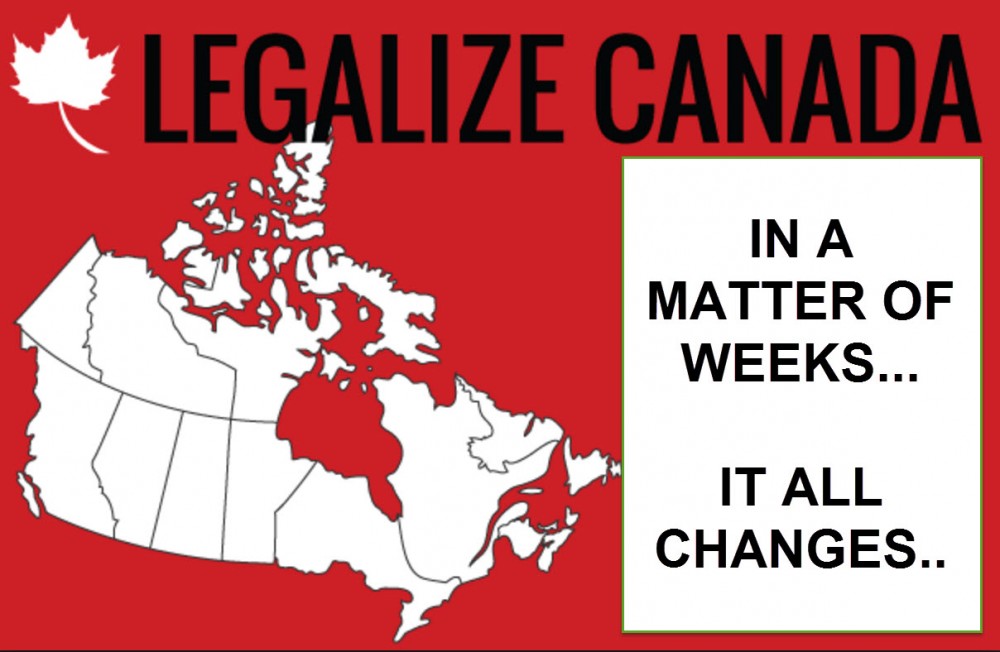Canada Facing Cannabis Shortage Right Before Legalization

With just a week to go before October 17, the date when Canada legalizes recreational cannabis, the country is facing a serious supply shortage.
CD Howe Institute, a Canadian think tank, released a report revealing that with the current supply, Canada will only be able to meet around 30-60% of the demand for recreational cannabis sales considering that Canadians are expected to buy at least 610.6 metric tons of pot. However, licensed producers are only able to come up with 146.13 metric tons, reports the Financial Post.
Additionally, the report says that following a year of cannabis legalization, producers are expected to increase supply to 210 metric tons. There are just around 97 licensed producers in Canada now, but this will increase to 144 by the 3rd quarter of 2019. The legal cannabis market is expected to fetch $4 billion, a Deloitte analysis says that this figure represents just half of the market, while sales from the black market is still attracting customers, with the total market size estimated to be upwards of $7 billion. A shortage of cannabis will lead to less tax dollars for the government. The Financial Post reports that if the entire cannabis industry in Canada were to be taxed, this could bring tax revenues to $1.3 billion but the shortage means only around $490 million in tax.
More importantly, the report authors say that the black market will still be booming for as long as there is a supply shortage which will discourage consumers from getting their pot from the legal market.
“The important policy conclusion is that there will not be enough legal supply, especially during the first half of the year following legalization, primarily because of the slow rate of licensing producers,” writes Anindya Sen, economics professor at the University of Waterloo.
“Our results show that both pricing and supply shortages will contribute to maintaining the black market,” said the report. “Resulting in lost tax revenues and a continued need to spend significant resources on law enforcement activities related to the market.”
To combat black market sales, sales of edibles and concentrates should be prioritized. Buying cannabis from the black market could pose a health risk to the public, because they don’t have the same access to information on potency nor do they have any idea about the safety protocols that went into producing concentrates.
Ray Gracewood of Organigram Inc. out of Nova Scotia, told Cannabis.net that "The rubber will meet the road soon as some LP's may not be able to supply the amount of cannabis they have agreed to or been contracted to supply on a specifc date around October 17th."
Demand For Low Potency Cannabis Is High
Interestingly, industry experts believe that low potency cannabis products will be in high demand as opposed to THC-rich products.
“Today’s consumer is what we describe as a risk taker. They’re young, typically with a high school or college education. In their quest to live life to the fullest, they’re more likely to put their health or safety at risk, even going so far as to skirt or break the law,” the report reads.
It adds that Canada’s new recreational cannabis consumer demographic belongs to the 35-54 year old age bracket, with three quarters of them having some kind of experience with using adult-use cannabis but just around 41% of them have used it within the last half of a decade. “This consumer is more of a conservative experimenter – typically middle-aged, with a university or graduate school education. They don’t tend to put their personal interests before family needs or other responsibilities,” says the report.
According to Andrew Pollock, VP of marketing for the Green Organic Dutchman company, more consumers are asking for high-CCBD products instead of highly psychoactive products. “CBD is becoming kind of an ‘it’ word in cannabis. We see a real trend there,” says Pollock. “What we’re finding is more and more consumers are just looking for something to help them relax, to take away the stress, maybe to help them sleep. What most consumers are looking for in this day and age is calm,” Pollock says.
Ali Wasuk of the West Canna dispensary located in Vancouver disclosed that CBD products are already in-demand with their medical customers, especially older consumers who don’t have recreational-use experience and are concerned about “getting high.”
“That crowd was the main one who kind of wanted to dabble, get their feet wet with the lower dose stuff,” Wasuk says. “Generally the medical side of it is mainly lower dose THC.”
OTHER STORIES YOU MAY ENJOY...
CANADA AND $10 BILLION COMING, CLICK HERE.








